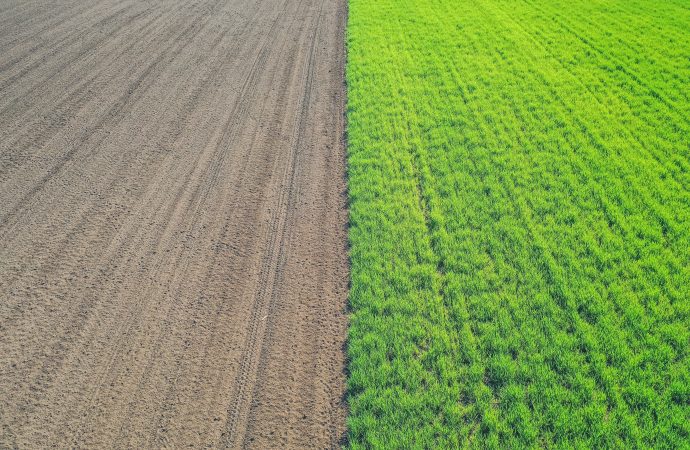Are you curious about where your food comes from? Do you want to know how to make sustainable choices that support local agriculture? Look no further, because we’re here to uncover the secrets of sustainable agriculture and locally sourced foods! In this blog post, we’ll explore what sustainable agriculture is and its benefits for both
Are you curious about where your food comes from? Do you want to know how to make sustainable choices that support local agriculture? Look no further, because we’re here to uncover the secrets of sustainable agriculture and locally sourced foods! In this blog post, we’ll explore what sustainable agriculture is and its benefits for both farmers and consumers. We’ll also tackle some of the challenges facing sustainable farming practices. So grab a snack (preferably locally sourced!) and let’s dive in!
What is sustainable agriculture?
Sustainable agriculture refers to a set of farming practices that prioritize environmental and social responsibility, while also ensuring long-term economic viability. This means using methods that conserve natural resources, reduce waste, and promote biodiversity.
One key aspect of sustainable agriculture is soil health. Farmers who practice sustainability often use techniques like crop rotation and cover cropping to improve soil quality over time. They may also avoid the use of synthetic fertilizers or pesticides in favor of organic alternatives.
Another important aspect is resource conservation. Sustainable farmers aim to minimize water usage by implementing efficient irrigation systems, planting drought-resistant crops or those adapted for local conditions, and reducing erosion through the use of measures such as terracing.
Sustainable agriculture isn’t just about farming practices; it’s also about supporting local communities. By sourcing food locally, consumers can help support small-scale farms and contribute to a more resilient agricultural system overall. In this way, sustainable agriculture benefits not only farmers but also consumers who value healthy food choices and environmentally sound production methods.
The benefits of sustainable agriculture
Sustainable agriculture has numerous benefits that make it an attractive option for farmers and consumers alike. One of the most significant advantages is that sustainable farming practices improve soil health, which in turn leads to increased yields and better crop quality. When farmers rely on natural fertilizers and pest control methods, they can produce healthier crops without damaging the ecosystem.
Another benefit of sustainable agriculture is that it promotes biodiversity by preserving habitats for wildlife and reducing the use of harmful chemicals. By avoiding monoculture planting, farmers create a more diverse environment where different species can thrive together.
Sustainable agriculture also supports local economies by providing jobs in rural communities and creating a market for locally sourced foods. This reduces transportation costs as food doesn’t have to travel long distances before reaching consumers’ plates.
Furthermore, sustainably grown foods are often more nutritious than their conventionally produced counterparts because they contain fewer harmful chemicals used in industrial farming. Consumers who prioritize healthy eating habits will appreciate this aspect of sustainable agriculture.
In summary, sustainable farming has many benefits not only environmentally but also economically and nutritionally. It’s important to support local farms practicing these methods so we can continue reaping these benefits while taking care of our planet at the same time.
The challenges of sustainable agriculture
While sustainable agriculture has many benefits, it is not without its challenges. One of the most significant obstacles to implementing sustainable practices is the cost. Sustainable agriculture often requires more labor and resources, which can be expensive for farmers.
Another challenge is educating consumers about the importance of buying locally sourced foods. Many people are unaware of the environmental and health benefits of supporting local farmers and may opt for cheaper, imported produce instead.
Climate change also poses a significant threat to sustainable agriculture. Erratic weather patterns can damage crops and reduce yields, making it difficult for farmers to maintain their livelihoods using sustainable methods.
Additionally, there are political challenges as well. Government policies that favor large-scale industrial farming operations over small-scale family farms can make it difficult for sustainable farmers to compete in the market.
Despite these challenges, there are still many innovative solutions being developed by farmers and researchers alike. By working together to address these obstacles head-on, we can help ensure a more secure future for our food system while protecting our planet’s natural resources at the same time.
Conclusion
Sustainable agriculture and locally sourced foods are not only important for our health and the environment, but also for the economic sustainability of small farmers. By supporting sustainable agriculture practices we can ensure a healthier future for ourselves, our communities, and the planet.
While there are challenges to implementing sustainable agricultural practices on a large scale, it is possible through education and support from governments and consumers alike. By choosing to buy locally sourced foods whenever possible, or growing your own produce at home, you can make a significant impact in reducing carbon emissions associated with food transportation while supporting your local economy.
As consumers become more aware of the benefits of sustainable agriculture, it is up to all of us to demand change in our food systems. So take action today by making informed choices about where your food comes from – let’s work together towards a more sustainable future!

















Leave a Comment
Your email address will not be published. Required fields are marked with *